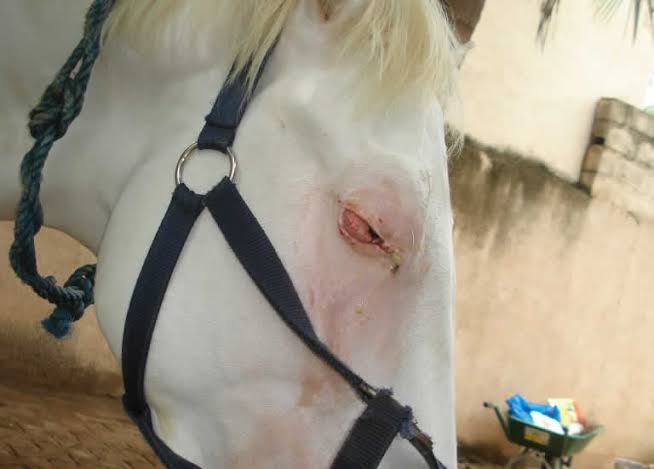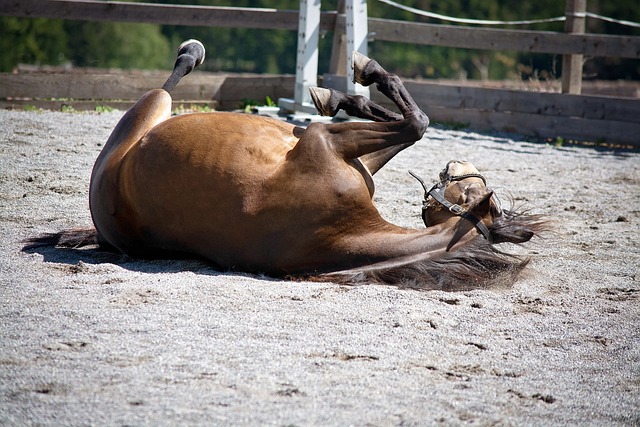
Everything You Need to Know About Horse Colic: Types, Causes, Symptoms, Prevention, and Treatment
What is Horse Colic & How It Can Impact Your Equine Friend
Colic, a condition characterized by abdominal pain in horses, represents the most prevalent medical cause leading to death within the equine population. With its diverse range of underlying causes, colic poses a significant threat to the health and well-being of horses, making it a critical concern for horse owners, veterinarians, and the equine industry as a whole. The seriousness of colic necessitates timely recognition, swift intervention, and comprehensive management strategies to improve outcomes and reduce the risk of fatality associated with this condition. Through heightened awareness, proactive preventive measures, and diligent veterinary care, it is possible to mitigate the impact of colic and safeguard the lives of horses.
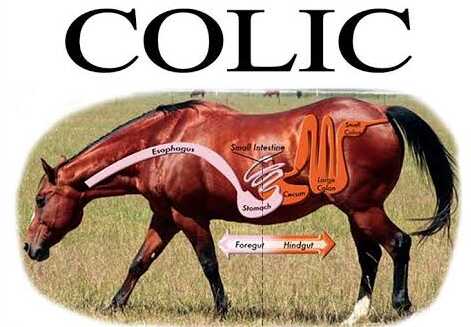
Types of Colic in Horses
- Gas colic: A type of colic that involves the accumulation of gas in both the stomach and intestines. As gas builds up, it causes distension of the gastrointestinal tract, leading to abdominal pain. Bacteria in the gut can produce excessive gas, particularly after consuming large quantities of grain or moldy feeds. To alleviate the pressure caused by the gas and fluid accumulation in the stomach, a veterinarian may insert a nasogastric tube. This procedure helps to relieve the discomfort and pressure associated with gas colic.
- Stomach distention: Horses have a relatively small stomach capacity, making them vulnerable to distension when they consume large quantities of grain in a single meal. This can potentially lead to stomach rupture, which is a life-threatening condition.
- Displacement colic: As the small intestine in a horse can move freely within the abdominal cavity due to the mesentery, there is a risk of the small intestine becoming twisted. Both small and large intestine can be displaced within the abdominal cavity, which may result in discomfort and impaired blood circulation. Displacement colic can be caused by gas buildup in the intestines which causes them to float and shift out of place. It requires surgery as an immediate treatment.
- Impaction colic: Also known as colonic impaction, occurs when the large intestine experiences folding upon itself, leading to various changes in direction (flexures) and diameter. These flexures and shifts in diameter can create susceptible locations for impactions, where the intestine, including the cecum, becomes blocked by a solid mass of feed or foreign material. Impactions can be caused by factors such as coarse feedstuff, dehydration, or the accumulation of substances like sand within the intestinal tract.
- Spasmodic colic: It’s characterized by the occurrence of painful contractions in the smooth muscle of the intestines. This condition, which shares similarities with indigestion in humans, typically responds well to treatment administered by a veterinarian. Spasmodic colic can be triggered by heightened levels of excitement.
- Enteritis: It refers to inflammation of the intestine, which can be caused by factors such as bacterial infection, excessive grain consumption, or consumption of contaminated feed. Horses affected by enteritis may experience diarrhea as a symptom. Diagnosing enteritis can be challenging, as it can exhibit similar signs to displacement or impaction colic.
Causes of Horse Colic
Colic can arise from various factors, primarily associated with the anatomy and microflora of the horse’s gastrointestinal tract. Here are some frequently encountered causes and risk factors of colic in horses:
- High grain diets or inadequate forage consumption
- Consumption of moldy or contaminated feed
- Sudden changes in feed type or routine
- Infestation of parasites
- Insufficient water intake leading to impaction colic
- Ingestion of sand
- Prolonged use of NSAIDs (non-steroidal anti-inflammatory drugs)
- Stressful conditions
- Dental issues
- Overweight
- Changes in weather
- Over-extended periods between feeding
- Frequent changes in exercise or work routine
- Young horses
- Geriatric horses
These factors can contribute to the development of colic in horses. It is essential to address and manage these causes to prevent and mitigate colic episodes.
Early Signs and Colic Symptoms in Horses
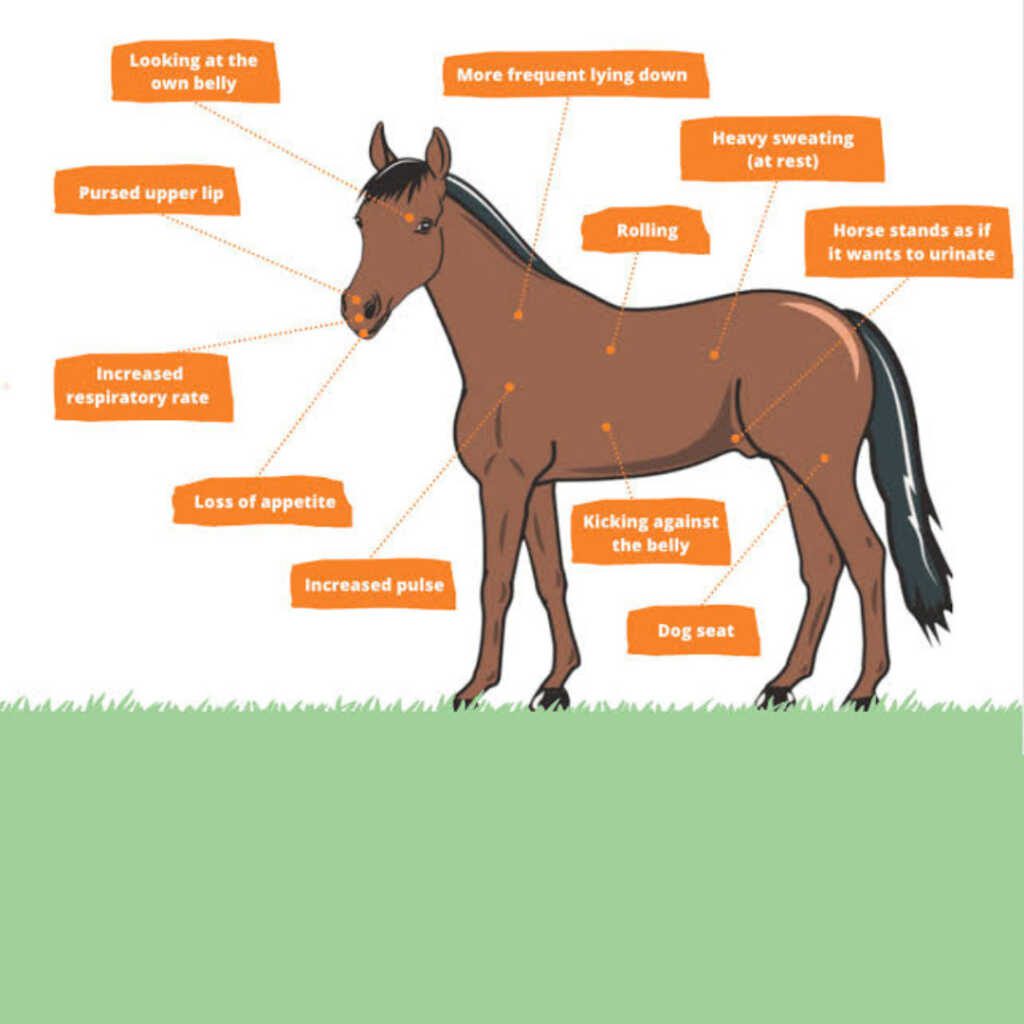
The following signs may be seen in horses experiencing colic:
- Frequently looking at their side
- Kicking or biting their belly or flank
- Rolling and frequently laying down
- Reduced or absent passage of manure
- Smaller fecal balls than usual
- Passing mucus-covered or dry manure
- Altered eating behavior, including decreased consumption of grain or hay
- Changes in drinking patterns
- Elevated heart rate, exceeding 45 to 50 beats per minute
- Gums are tacky
- Prolonged capillary refill time
- Abnormal coloring of the mucous membranes
These signs may indicate the presence of colic in horses and should be taken seriously. It is important to seek veterinary attention promptly when these symptoms are observed.
How to Prevent Colic in Horses
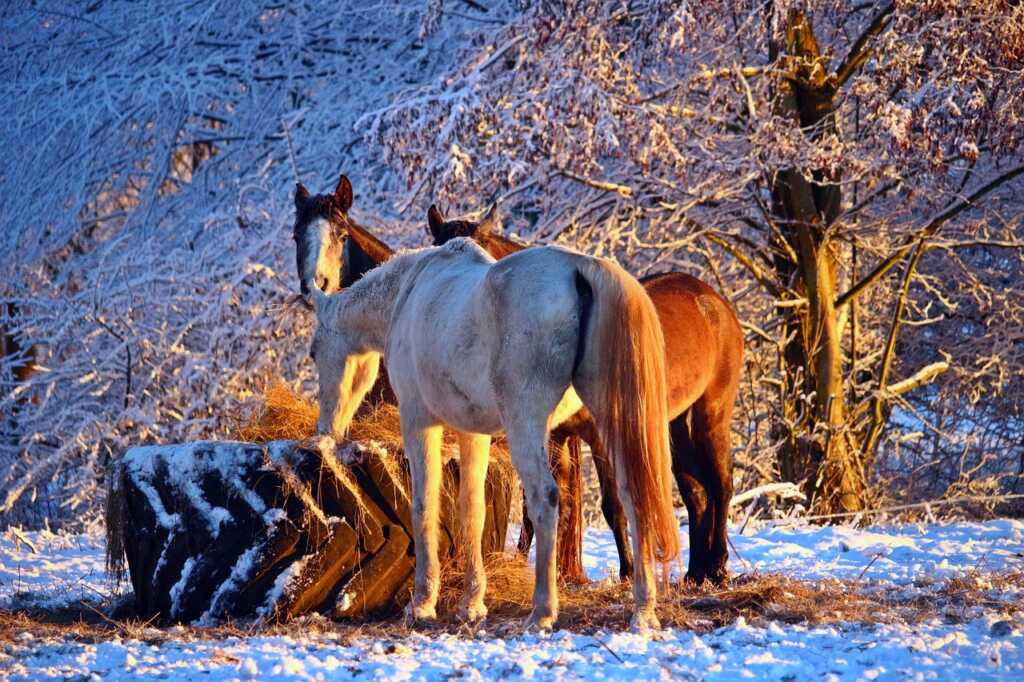
To help prevent your horse from colicking, consider implementing the following preventative measures:
- Maintain a regular feeding schedule, even on weekends.
- Avoid sudden changes in the horse’s diet.
Ensure a clean and fresh water supply is always available. - Keep feed boxes, hay racks, and feedstuffs clean and free from mold and dust.
- Horse teeth should be checked by a veterinarian every 6 months for dental problems that can impact chewing.
- Provide adequate exercise to promote gastrointestinal motility.
- Feed an appropriate amount of forage, making sure it constitutes at least 50% of the total diet.
- Avoid feeding the horse directly from the ground. Use rack or hay tube to prevent sand ingestion. Also, place a mat below the feeding rack or tube to make sure your horse doesn’t eat scraps mixed with sand.
- Allow pasture turnout. Let your horse graze in a field daily to reduce the risk of colic.
- Implement an effective parasite control program tailored to your specific farm’s needs, including regular fecal egg counts (1-2 per year as recommended by a veterinarian) and deworming.
- Limit the feeding of grain and pelleted feed to when it is necessary.
- Look out for colic symptoms, particularly during feeding, exercise, or changes in routine
- Keep a close watch on horses with a history of colic, broodmares during the first two months after foaling, and horses on nonsteroidal anti-inflammatory drugs (such as banamine or bute).
By adhering to these preventative measures, you can minimize the risk of colic in horses and promote their gastrointestinal health and overall well-being.
Treatment for Equine Colic
It’s crucial to identify the underlying medical cause behind the colic symptoms to effectively treat colic in horses. The treatment can be carried out on the farm, but in certain cases, it may be necessary to transport the horse to a hospital for further evaluation, round-the-clock care, and potential surgical intervention.
Colic is typically treated medically using non-steroidal anti-inflammatory drugs like banamine (flunixin meglumine) to relieve pain and inflammation. Additionally, administering fluids, electrolytes, or mineral oil through a nasogastric tube inserted into the horse’s stomach can be beneficial. If the horse doesn’t show improvement with farm-based medications and treatments, hospitalization or surgical intervention may be required to address the condition effectively.
Conclusion
To enhance your horse’s overall health and minimize the risk of colic, consult with your primary veterinarian regarding any additional measures or practices you can implement. They can provide tailored advice based on your horse’s specific needs.
If you suspect your horse is experiencing colic, it is crucial to promptly contact your veterinarian. Early intervention and professional guidance are essential in addressing colic effectively and ensuring the well-being of your horse.







